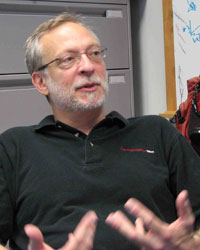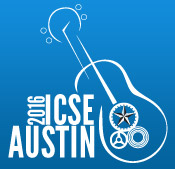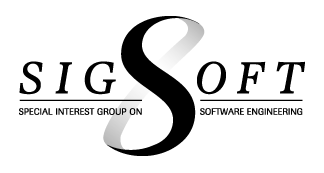Software Engineering in Society: Keynotes
Wednesday May 18, 11:00 am - 12:30 pm
Session Chair: Grace Lewis
Room: Ballroom A
11:00 - 11:45 AM ― Software Engineering and Policy

Anthony Finkelstein, The Alan Turing Institute, British Library, United Kingdom of Great Britain and Northern Ireland In this talk I will consider the contributions that software engineering as a discipline can make to the development and implementation of government policy. It is intended to support the growing body of knowledge on scientific advice in government and to encourage software engineers to engage with policy and the policy community. The talk will be supported by examples from my experience as a Chief Scientific Adviser in the UK Government. |
11:45 - 12:30 PM ― The Scientific Discipline of Societal Computing: Shaping the Digital Landscape

Jim Herbsleb, Carnegie Mellon University, School of Computer Science, United States of America
Software, it seems, is in everything. Consequently, more and more of our daily experiences are lived in and through software. Both online and in a physical world increasingly animated with sensors, actuators, and displays, computing technology gives shape to the landscape in which people socialize, conduct commerce, play, work, and communicate. As Lessig [1] noted years ago, code has become a fundamental regulator and enabler of human behavior. While we technologists have been very successful pleasing individual consumers, we have as yet limited ability to design software to have the societal impact we want, or to understand its implications for policy, or even to assess its societal-scale effects after deployment. Based on the belief that this challenge requires us to forge a new discipline, the School of Computer Science at Carnegie Mellon University created a PhD program in Societal Computing. The discipline we seek to advance is defined by the fundamental question it asks: "How can we design computing technologies to address societal needs and concerns, and how can we assess and guide the design, implementation and deployment of new computing technologies as they appear?" In this talk, I will describe our view of this new discipline, give some examples of research in this vein, and briefly describe the curriculum through which we are preparing a new generation of scholars.
|




